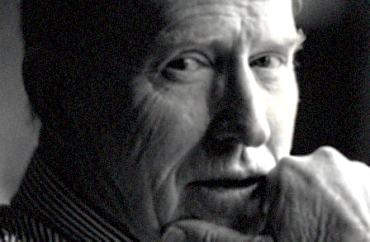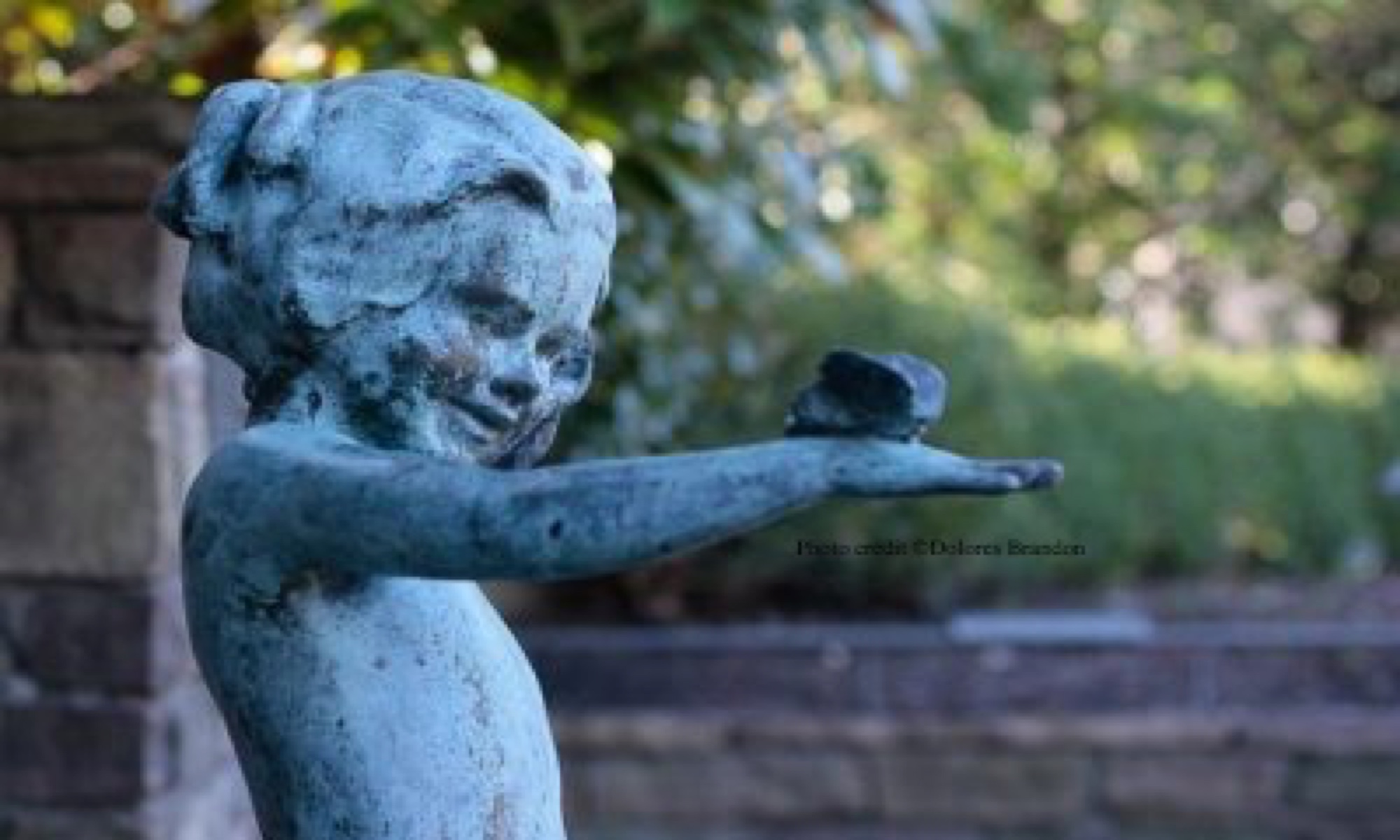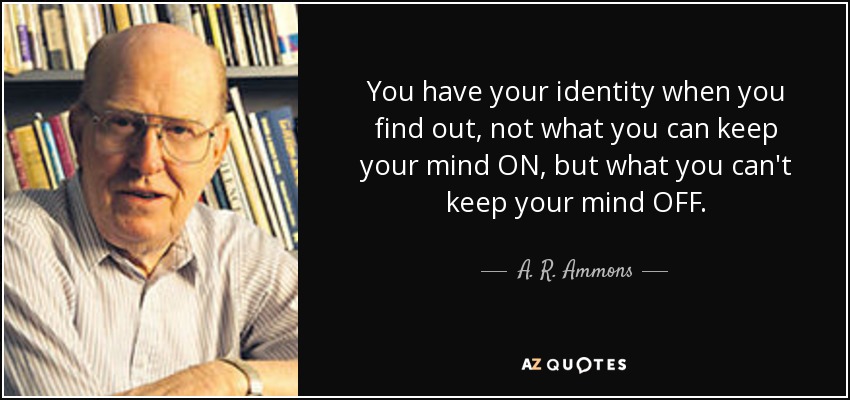
In October 1996, I was assigned (by ARTBEAT) to profile the poet A.R. Ammons on the occasion of a rare public reading he was doing at the 92nd St Y (New York, NY).
Typically, an assignment involved my personally recording the live event and conducting a sit down interview with the subject artist — the recorded material being the resource audio to be edited, assembled and mixed with my voiced narration as the final produced piece. Circumstances and a dose of Murphy’s Law conspired to make a sit down with Ammons impossible, so I arranged to interview him by telephone on December 3, 1996
Ammons, proved to be a prickly interviewee. He clearly did not like to be interviewed. Despite that basic tension Ammons did come forth some nuggets of good wisdom. What follows are highlights from that interview conducted.
IN HIS OWN VOICE
DB: You describe yourself as – “a marriage of South and North” – explain?
ARA: Well, I hope I don’t sound preposterous here, but I am told by critics that I am heir to the Emersonian tradition; as a southerner, that might seem peculiar to a New Englander. But we do read Emerson and Thoreau in the South and I was greatly attracted to Emerson. I literally physically moved from N. Carolina first to South Jersey and then to Ithaca, New York; having lived here for thirty-two years, I am to some extent northern.
DB: What does it mean to be a southerner?
ARA: I really don’t know, there are a great many things I’ve forgotten – my wife says there are four Cs- “Coke, Christ, cars and country music” (laughter)
DB: Your poems do sometimes have the timber of Christian hymns: you even have a poem titled Hymn, which you read beautifully at the 92nd St. Y
ARA: Certainly those hymns that I heard as a child have a lot to do with me [as a poet], yes BUT not in any denominational way.
The hymns if you look at them closely are very Emersonian: they nearly always speak of Death as being Heaven; that is they transform the nakedness of Reality into a kind of consoling difference. And I think Emerson did that to a certain extent.
Emerson is known for a kind of positivism, or what is called a transcendental tradition, a philosophy, which says ( I think) that one can use one’s difficulties toward an improved end. The form it takes with me is a kind of abstract language, a kind of philosophical discourse. I don’t think I go as far with these things as Emerson does, but what I believe in is a kind of dynamics, let’s say: I guess it’s what the Buddhists would call the Way – there are many subsidiary Ways and then there is the central Way, and I take that to mean the way influences and energies move through the material and spiritual world. I don’t know quite what I’m identifying with when I say that, but I feel it as something very close to me.
You know, after he resigned from the Church, as a preacher, Emerson went very quickly to the Asian philosophies. That’s the way I went — to Hindu philosophy, Buddhism, all kinds of Eastern thought.
And, the pre-Socratics — a pre-philosophical time [associated with Ancient Greece] in which poets and scientists, and religious figures were sort of all united in one person expressing a kind of poetry science that was shorn of all kinds of idealogy and science was not divided from human feeling and/or poetic expression.I feel very close to that; the last 2000 years seems like a diversion that I would much more happily have known nothing about.
Poets don’t know anything philosophical very much worthwhile; philosophers do. Poets pick up ideas as vehicles by which they express themselves in their behavior, and it’s the behavior that gives the accurate sense of who the poet is.
I’m only interested in aesthetic matters. I think poems are forms of behavior.
DB: Your poems are so full of detail, I feel as if I were to just read them alone, I would know everything I could know about you.
ARA: Well, there are many levels of knowing: there’s the strictly factional, informational level – you wouldn’t know everything there, but there are levels of assimilation and synthesis where all your information and facts turns into a form of feeling, and a way of behavior, and that way you would know everything.
If you read my poem and see not just what I say, but how I behave then it’s the same as it is with a person: there’s the person who says something, and then there’s the way the person is in the world, the way he behaves, and they often go together, but they’re often inconsistent, that’s where irony comes from. For example, if you were to come indoors from a frigid day, you could say ‘pretty hot out there, isn’t it?’ you know, but then the hearer would know that you meant the opposite of what you said. So, what you say, and the behavior or the context in which it occurs has a lot to do with the real meaning of the poem or of the self.
DB: In a Paris Review interview (1996)* you reference Harold Bloom [a staunch admirer of yours] saying a “poem IS anxiety”. What does that mean?
ARA: I would say it’s the energy of exploration that comes from a general sense of uneasiness, a kind of uncertainty and insecurity seeking what Frost called “a momentary stay against confusion”; it plants a kind of germinating order in your life.
Uneasiness needn’t necessarily be an uncomfortable sensation. For example, supposing you were born and then thrown into the periphery, or away from conventional society and you wanted to get back and you tried to come into a strong relationship with your fellow man; suppose you couldn’t get there all the way, but let’s say you also couldn’t prevent your thrown-ness from showing itself – you see how genuine that would be. What you were trying to achieve, you would fail to achieve, but what was really you, would be unpreventably present. That is the genuine self.
I tell my students, for example, what will sustain them is an ongoing problem, not a solution. They come to me for answers and I try to alert them to the dynamics of the ongoing insoluble problems that we live with because that is the source of creative energy: solutions are very temporary and transient.
My students go around the world looking for a style, a voice – I tell them forget it, you have a style and a voice, let’s see you get rid of it. You can’t. That’s where the genuine self is.
*NOTE: Paris Review interview by David Lehman, Summer 1996, No. 139
See my companion interview with Editor, Gerald Howard
Copyright: Dolores Brandon All Rights Reserved:
Permission to reproduce requested: contact brandon.dolores@gmail.com

